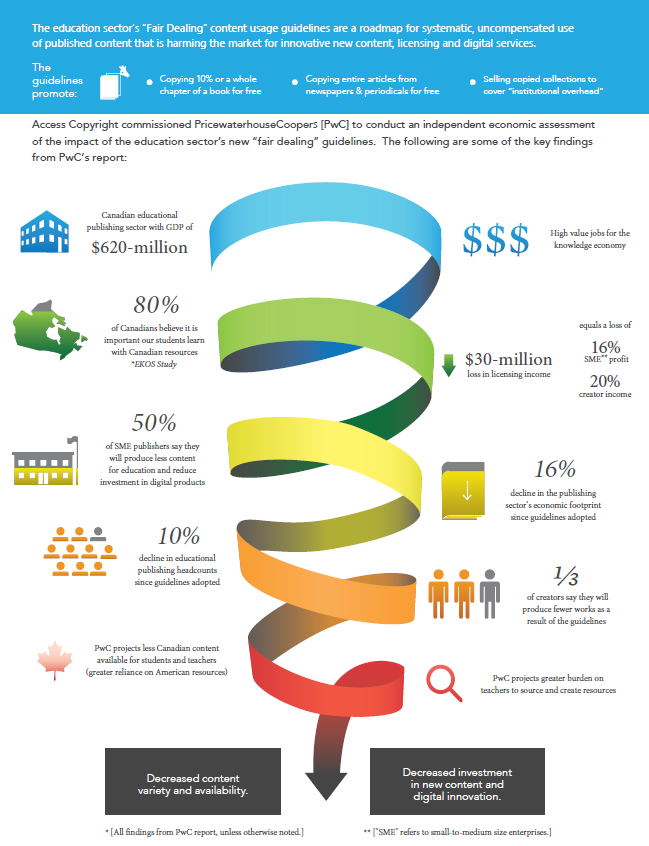Impacts of the education sector’s interpretation of “fair dealing”
Thursday, July 30, 2015
In 2012, the majority of Canadian universities, colleges and school boards outside Quebec adopted “fair dealing” content use guidelines that set out the education sector’s interpretation of what can be copied without compensation to creators or publishers.
The guidelines promote the systematic copying of 10% or a chapter of a work, entire newspaper, journal or magazine articles, short stories and more. Since their implementation, all public elementary and secondary schools outside Quebec and numerous post-secondary educational institutions have ceased paying royalties for the copying of published works.
Significant harm to educational publishing in Canada with negative impacts expected to continue
PricewaterhouseCoopers (PwC) was engaged by Access Copyright to conduct an independent economic assessment of the impacts of the education sector’s “fair dealing” guidelines on the Canadian market for educational content. PwC’s findings are contained in the June 2015 report Economic Impacts of the Canadian Educational Sector’s Fair Dealing Guidelines.
Fewer Canadian titles & less variety for Canadian educators and students.
PwC conducted a comprehensive assessment of the educational publishing industry and the impacts of the guidelines on the market. They found that the education sector's "fair dealing" guidelines have already significantly harmed the educational publishing industry in Canada and that the negative impacts are expected to continue.
Reduced investment in Canada.
The guidelines and weak market are expected to cause educational publishers to reduce their investments in Canada; meaning fewer Canadian titles and less content variety. The guidelines also significantly lower incentives for creators to create content for the educational publishing market.
In the longer term, Canadian K-12 and post-secondary students, teachers, and professors—namely, the users of educational content—will also be subject to a limited availability of digital and Canadian content, a deterioration in the diversity and quality of content used in the classroom, and a market framework that eliminates incentives and discourages innovation in the Canadian digital, knowledge-based economy.
Read more about PwC’s report, Economic Impacts of the Canadian Educational Sector’s Fair Dealing Guidelines
